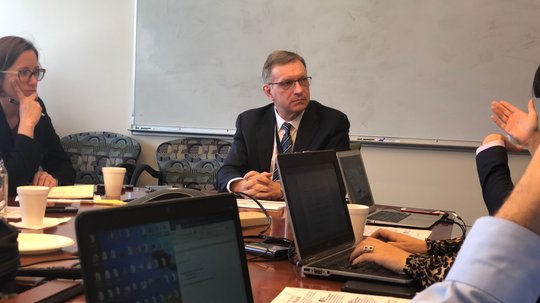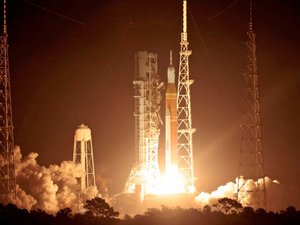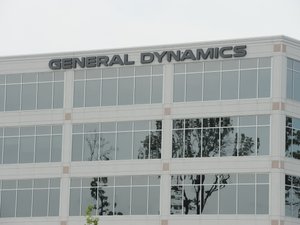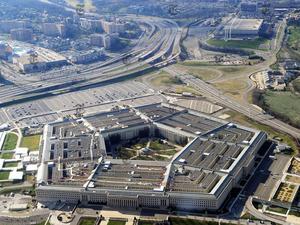
Rising interest rates and ever-looming economic uncertainty may have made venture capital a bit more conservative of late, but the investment arm of defense contracting giant Lockheed Martin Corp. (NYSE: LMT) said it has no plans on slowing down.
Indeed, it's ramped up quite a bit in the last couple of years, said Chris Moran, vice president and general manager of Lockheed Martin Ventures. That's in part because it's seen a benefit to its own technology portfolio, but also a bigger mission to help support more small businesses, which have been struggling even more lately with government procurement shifts, he said.
“If the government buys a lot of stuff one year and then buys nothing the next year, there are not a lot of small companies that will survive that,” Moran said in an interview. Big defense contractors like Lockheed "are sort of set up to deal with that. We know how that works, but I think small companies need some special handling. And it's going to take that special handling to come from both their investors with a high degree of patience and with the government with a bit more, let's say, forward-thinking procurement policies to make that happen.”
In the meantime, he said, Lockheed Martin Ventures has doubled its scope to help fill in some of the gap — and the Bethesda giant's tech priorities. Lockheed Martin last year grew its total venture fund to $400 million, up from its $200 million in commitments in 2020 and its original launch in 2007 with a $100 million fund for startups. The larger company intends to invest an average $2 million to $5 million apiece into companies, with a focus on those that can provide critical components to its supply chain.
In 2020, Lockheed's VC arm counted only two investment managers. Now, it has four, one for each of Lockheed Martin's overall business segments, with an associate under them. Moran said Lockheed invested more into its venture arm's personnel as part of an increasing priority to stay abreast of advanced and fast-changing innovation, including artificial intelligence, quantum computing and robotics.
“I’ve been doing this for 18 years now, and what I found is that the number of investments you do is actually related to the number of investment managers that you have,” Moran said.
To wit, in 2020, the venture group could do only six to eight investments a year because it typically takes an investment manager two to three months to close a deal. Today, the firm has 12 employees and is on pace to do 12 to 15 deals a year. Last year, it rose to one of the region's most active venture capitalists with 17 deals, according to Washington Business Journal research.
Moran has no plans to add more investment managers, but said he would like to add more people on the post-investment side to help guide the startups under its wing.
Lockheed isn't the only one in this sphere. But even with all of the newer VC activity of other defense giants like Booz Allen Hamilton Inc. (NYSE: BAH) and RTX, rebranded from Raytheon Technologies Corp. (NYSE: RTX), Moran said there isn’t as much overt competition as there is when they're vying for defense contracts. It’s why Lockheed Martin Ventures and RTX Ventures jointly invested in a Boston 3D printing startup earlier this month, and according to Moran, there are other co-investments with RTX, Booz Allen and Honeywell International Inc. (NASDAQ: HON) at work on several deals.
“We try to be sort of pre-competitive from the investment standpoint because it's really about getting this little company set up to be successful,” Moran said. “If our effort is to create a better defense industrial base, it's not going be helpful to do nasty competitive things.”
Lockheed Martin had rebooted its venture strategy in 2016 when it hired Moran — an engineer who spent 35 years in Silicon Valley, including senior executive roles at Applied Materials — to breathe new life into it. His plan was to align its investments more closely with the parent company's four business segments: aeronautics, missiles and fire control, rotary, and mission systems and space. In all, it's invested in 35 companies, from Electra.aero Inc. in Falls Church to Mythic Inc., Machina Labs and Terran Orbital, all based in California.
"The No. 1 goal is to access this tech, build up the defense industrial base and then use these folks as suppliers to programs that we work on," Moran said.




